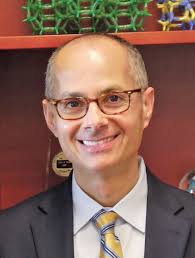
Introduction
Omar Yaghi, a prominent figure in the field of chemistry, has gained international recognition for his innovative research in the area of porous materials. His groundbreaking work has far-reaching implications, especially in energy storage, environmental sustainability, and healthcare. As the world grapples with pressing challenges such as climate change, scientists like Yaghi are at the forefront of developing solutions that are both practical and transformative.
A Legacy of Innovation
Born in Jordan and later moving to the United States, Omar Yaghi’s academic journey has been marked by a relentless pursuit of knowledge. He earned his Ph.D. from the University of Illinois and has held faculty positions at several prestigious institutions, including the University of Michigan and the University of California, Berkeley. Yaghi is perhaps best known for his pioneering work on metal-organic frameworks (MOFs) and covalent organic frameworks (COFs), which are materials characterized by their highly porous structure and versatility.
Metal-Organic Frameworks (MOFs)
Yaghi’s development of MOFs has revolutionized the way scientists conceive of materials for storing gases such as hydrogen and carbon dioxide, aiming to mitigate the effects of global warming. These frameworks possess an exceptionally high surface area and tunability, making them suitable for a wide range of applications, from catalysis to drug delivery. Recent studies indicate that MOFs could play a crucial role in carbon capture technologies, helping industries meet stringent emissions targets.
Covalent Organic Frameworks (COFs)
In addition to MOFs, Yaghi’s work extends to COFs, which are made entirely from light elements like boron, carbon, and nitrogen. These materials have significant potential in energy storage and electronics. As renewable energy technologies proliferate, the need for efficient materials will become vital, and COFs may bridge gaps in current technologies.
Current and Future Projects
Recently, Yaghi and his research team have been exploring the use of MOFs in energy-efficient systems and advanced drug delivery mechanisms. His work continues to be funded by major institutions due to its potential impact on global challenges such as energy crisis and health care problems.
Conclusion
Omar Yaghi’s contributions to science are not only groundbreaking but are also essential for addressing issues that affect humanity on a global scale. As countries strive for sustainability and breakthroughs in medicine, the future of research led by innovators like Yaghi is promising. His pioneering spirit and commitment to solving complex problems place him as a critical player in the future of chemistry and materials science. The implications of his research may not only change technologies but also improve quality of life for many around the world.



